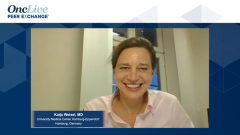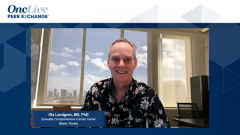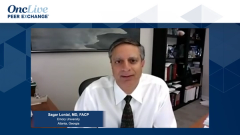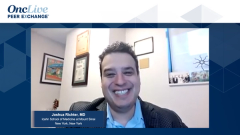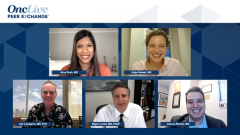
KarMMa Study in Relapsed/Refractory Multiple Myeloma
Katja Weisel, MD, reviews the study results from the KarMMa study evaluating the use of ide-cel in patients with relapsed/refractory multiple myeloma.
Nina Shah, MD: We’ve been talking about cilta-cel [ciltacabtagene autoleucel], which is up and coming, but we can’t not mention ide-cel [idecabtagene vicleucel], which is approved. Katja, maybe we could talk a little about the mechanism of action of ide-cel [idecabtagene vicleucel] and talk about the efficacy and safety results from the KarMMa study, which was published in the New England Journal of Medicine and had some updates last year at ASCO [American Society of Clinical Oncology Annual Meeting]. What are the key takeaways from the study? Who might be eligible for this particular CAR [chimeric antigen receptor] T-cell therapy?
Katja Weisel, MD: As Ola mentioned, it was a run-through from the preclinical development to the first patient in a truly matched bedside approach with a clear aim combining the specificity of a monoclonal antibody with the efficacy of cytotoxic T cell, resulting in the ide-cel [idecabtagene vicleucel] treatment. For myeloma physicians, the most unusual thing was the single shot. We just have the flu/cy [fludarabine, cyclophosphamide] lymphodepletion, which is very moderate in the dosage when you’re coming from leukemia treatment or other hematologic diseases. That’s a 3-day 300/30 dose of flu/cy [fludarabine, cyclophosphamide] and then the infusion of the manufactured product. In the KarMMa trial, patients were allowed to receive a bridging therapy. You could only use drugs the patient had before so that the results weren’t impacted by that.
The KarMMa trial was a pivotal trial that reported stunning results because the patients who were included were last-line patients at this time, with a median of 6 prior lines. More than 30% were high-risk patients, and 39% of patients had extramedullary disease, which normally represents a really poor outcome fraction. This trial wasn’t completed with picked or very selected patients. Then with this single CAR T-cell approach, not all patients received an optimal dose because there were 3 doses used in the pivotal trial. A median PFS [progression-free survival] of 8.8 months was reached, which was unprecedented until the data came out of cilta-cel [ciltacabtagene autoleucel] in this patient population. The overall survival is also very important, and it was more than 19 months in a situation where we normally have an overall survival of about 6 months. This shows that patients are coming out in good shape, so even if they experience a relapse, they can be re-treated somehow.
There was a lot of discussion of whether there was a plateau, and for me it was a bit artificial with the patients we had in front of us. We started very late in Germany. I personally have 1 patient who received CAR T in this trial 3 years ago in December of 2018 in the 11th line, and they’re still in CR [complete remission]. This shows the potential it can have. For me, this is still very unique.
Nina Shah, MD: Yes. A couple of us have these long-term patients, and it tells us that there’s something about the patients that might be able to predict who does better or worse. We’ve been working on that analysis in both of those products to try to figure out who will do the best.
Transcript Edited for Clarity


